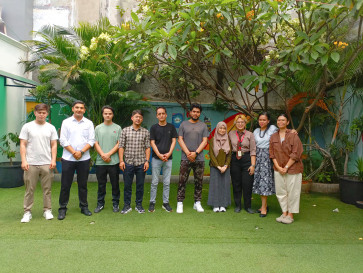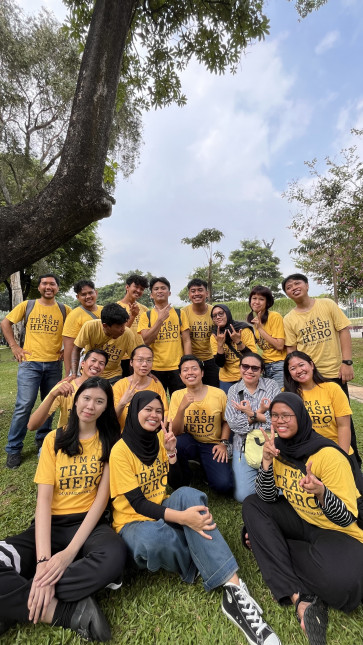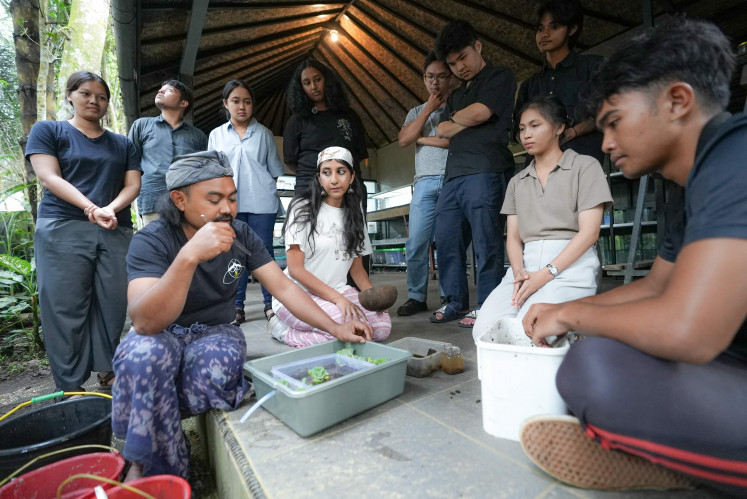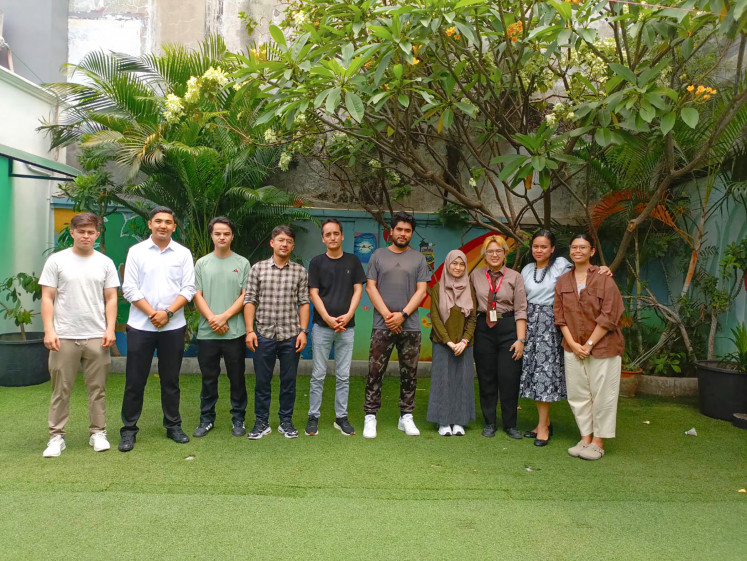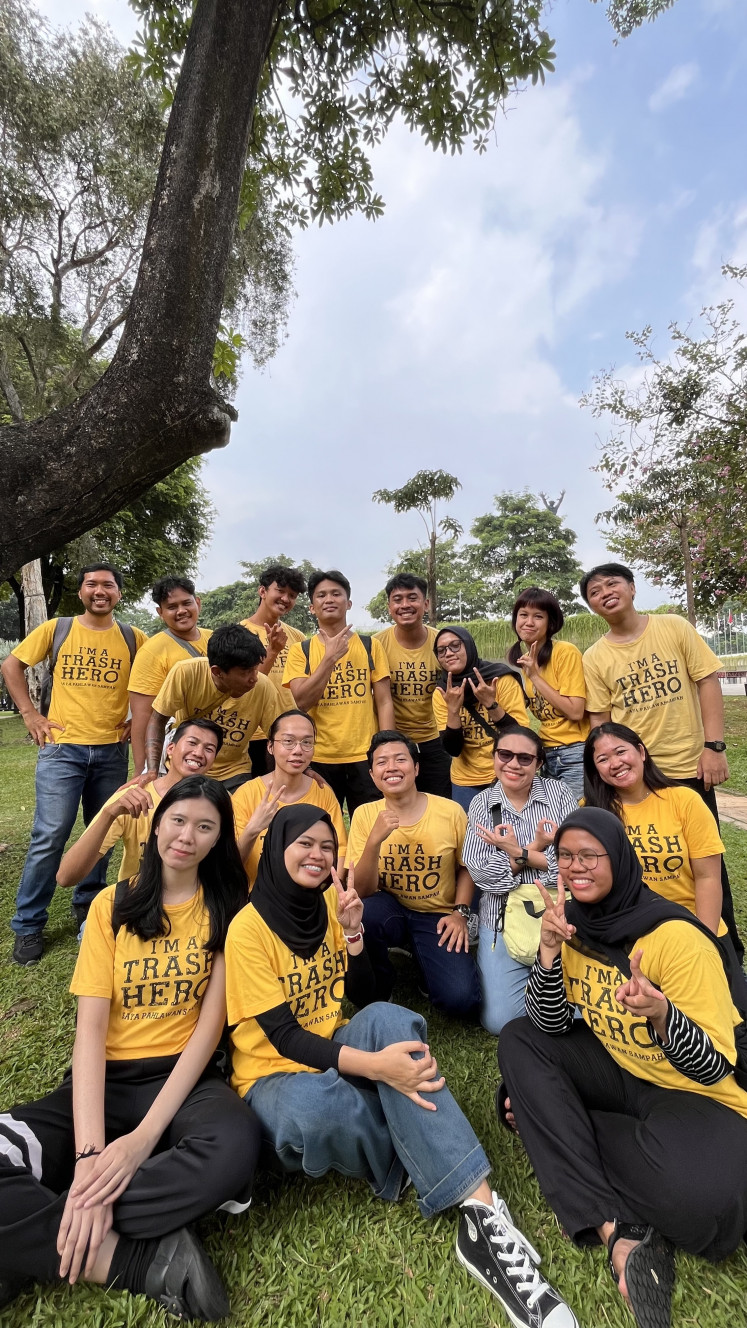Say what you will about Gen Z musicians, they have always been good about confronting their deepest, sometimes darkest emotions. Raissa Ramadhani, as evidenced by her debut album, Ribuan Rindu (Thousands of Longings), manages to push that emotional audit to a whole new level.
Across 10 tracks, she conducts an investigation of the heart, exploring what it truly means to miss someone.
But why this particular emotion?
“[Because] what causes the greatest pain we could ever go through is our longing for someone,” Raissa explains, citing the loss of her mother as an example.
“There will come a point where there is nothing we can do about it except feel the feelings. For me, that is pretty tough.”
The tougher the reality, the richer Raissa's artistry. Sure, romantic fantasy often makes for the catchiest pop tunes. However, as a musician, Raissa understands that what her generation needs is not more make-believe.

Thank you!
For signing up to our newsletter.
Please check your email for your newsletter subscription.
It's complicated
Raissa’s storytelling in Ribuan Rindu is rooted in emotional honesty. Even when longing, an emotion often romanticized, turns complicated or even bitter.
In Seribu Pelukan (A Thousand Hugs), she describes how deep longing reflects an eternal bond between two people. In Tak Bisa Gantikannya (Can’t Replace Her), she chronicles the pain of being with a man who cannot get over his eternal bond with someone else.
This is where the ugly truth hits hard. Love may lead to longing, but it can also lead to emotional betrayal. In the worst-case scenario, longing can end up in confinement, as Raissa narrates in Rindu Yang Menyiksa (Torturous Longing).
She ends the album with the bitter Manusia Tanpa Perasaan (Person Without Feelings). True to her artistic credo, Raissa refuses to force a false happy ending.
"Life, especially romantic life, is not like a fairytale," she chuckles.
"Sometimes things end with bitterness. I want to be very honest about it."
The power of the mezzo-soprano
As a storyteller, Raissa’s confidence is effortless. As a singer, though, she has a more difficult task compared to her peers.
Her voice is mezzo-soprano, a rarity on the current Indonesian pop music scene. Even though mezzo-sopranos typically have a distinctive vocal texture and tone, they usually do not have the depth of contraltos or the dynamism of sopranos.
Raissa also notes a double standard: female singers are often expected to be more technically versatile than their male counterparts.
"I'm very aware of my voice. Subconsciously, I couldn't help but wonder if soprano is the only acceptable voice and whether singers, especially women, are obligated to belt," Raissa elaborates.
"It's as if head voice in [pop] music were banned these days."
Raissa embraces her distinctive voice, believing there is a place for every type of female singer in the music industry. Still, she knew she needed help. That is one of the reasons she chose to work with songwriters and music producers who are mostly still under the radar, such as Resa Husin, Jessica Siahaan and Koko Irya.
With her mezzo-soprano voice, Raissa explores the layers of longing in her 10-track album. (Sony Music Entertainment Indonesia/ .)
Raissa selected her collaborators based on the ones who understand her strength and creative vision, those who “clicked” with her.
"When I listened to the [song demos], my focus was as simple as whether they resonated with my heart or not. Once I felt the chills, I knew," she says.
"I didn't know how many followers they have. I didn't even know who was behind the demos. Once I liked the demos, that's when I got to know the songwriters."
The good fight
Perhaps the best showcase of Raissa's identity, as both a storyteller and a singer, is the album's third track, Berjuang Sekali Lagi (Fighting Once Again). A midtempo ballad written by Meytaria Rosalina and produced by Yafi Aria, the song features a tight melodic structure, resulting in a vocal cadence made more distinctive by Raissa's mezzo-soprano tone.
Lyrically, it speaks to how punishing it is to try to stop longing for someone.
The song fits her like a glove, but being young can sometimes mean overthinking.
"I love this song so much, but [initially] I didn't want to take it on because I was scared," Raissa says.
"This song has many ups and downs, and it's tight [melodically]. I wasn't sure I had the lungs for it. I thought, at the time, I wasn't meant for this song."
Still, she decided to record Berjuang Sekali Lagi anyway. It was difficult, but she wanted to prove to her team, and herself, that sometimes the hardest things are the most beautiful.
Raissa championed the song to be included in the album's final tracklist.
"The moral of the story is never doubt yourself," she laughs.
With Ribuan Rindu, Raissa shows the entire music industry that a mezzo-soprano singer has what it takes to be a future pop diva. She also proves that focused storytelling can produce a rich and layered work of art.
Looking ahead, she hopes to work with Andi Rianto, Teddy Adhitya and Yovie Widianto. But what human emotion might she explore next?
Raissa answers, with a playful and mysterious smile, "Regret."
Life can feel like a painful paradise sometimes. Thank God we have Raissa Ramadhani to help us feel it all.
Felix Martua is a music and film journalist who has interviewed countless artists over the years. He’s known for his signature black jacket, Ghibli collar pin and slightly sinister grin.






